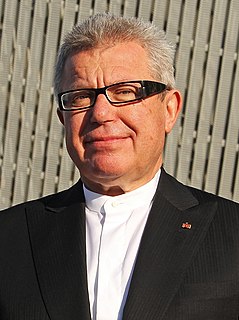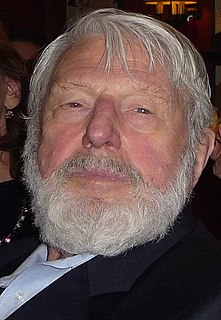A Quote by W. S. Di Piero
I've spent most of my life in cities, and so I've always lived with the curiosity about what makes for city cultures and how peoples live in cities, how peoples anywhere manage to co-exist, the public life and the private life.
Related Quotes
For the most part, French cities are much better preserved and looked after than British cities, because the bourgeoisie, the people who run the cities, have always lived centrally, which has only recently begun to happen in big cities in England. Traditionally in England, people who had any money would live out in the suburbs. Now, increasingly, people with money live in the cities, but this has changed only in the last 20 or so years.
In great cities, spaces as well as places are designed and built: walking, witnessing, being in public, are as much part of the design and purpose as is being inside to eat, sleep, make shoes or love or music. The word citizen has to do with cities, and the ideal city is organized around citizenship -- around participation in public life.
I live in New York City. I could never live anywhere else. The events of September 11 forced me to confront the fact that no matter what, I live here and always will. One of my favorite things about New York is that you can pick up the phone and order anything and someone will deliver it to you. Once I lived for a year in another city, and almost every waking hour of my life was spent going to stores, buying things, loading them into the car, bringing them home, unloading them, and carrying them into the house. How anyone gets anything done in these places is a mystery to me.
If what was said in the Ethics is true, that the happy life is the life according to virtue lived without impediment, and that virtue is a mean, then the life which is in a mean, and in a mean attainable by every one, must be the best. And the same principles of virtue and vice are characteristic of cities and of constitutions; for the constitution is in a figure the life of the city.
I've spent most of my life living in cities where people are obsessed with looking down on people from everywhere else. You get so used to doing it that you start to believe it's simply what everyone does. It makes for an atmosphere of unwelcome that penetrates much of our modern life. It's a shame really because a couple days in Oklahoma will open your eyes to how much better it would be if the rest of the country was filled with a few more people from Oklahoma.
It is not simply that these two cities are perched side by side at the edge of the Pacific; it is that adolescence sits next to middle age, and they don't know how to relate to each other. In a way, these two cities exist in different centuries. San Diego is a post-industrial city talking about settling down, slowing down, building clean industry. Tijuana is a preindustrial city talking about changing, moving forward, growing. Yet they form a single metropolitan area.






































